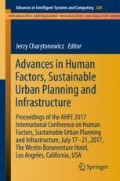Abstract
The desire for sustainable construction has been on the increase and one of the identified challenges is the adequacy of skilled workforce to understand and execute projects in line with sustainable goals. This study examines the general effects of skill shortages in the construction industry with a view to improving the delivery of construction projects. Variables from reviewed literature materials were examined using closed-ended questionnaires administered on professionals and artisans in the industry. Shortage of project managers has the most effect on sustainable construction while the general effects of skill shortages are cost increase, time overrun, decrease quality, high accidents rate and more rework, which are related to the three elements of sustainable development, that is, economic, social and environment. Agencies shouldered with the responsibilities of managing and regulating skilled workforce in the construction industry will find this study useful in their quest for delivery of sustainable construction projects.
Access this chapter
Tax calculation will be finalised at checkout
Purchases are for personal use only
References
Constriction Industry Development Board: South Africa Construction Industry Status Report. Constriction industry Development Board, Pretoria (2015)
Construction Education and Training Authority: Sector skills plan update: 2013/2014, Department of Higher Education and Training, South Africa (2013)
Tshele, L., Agumba, J.N.: Investigating the causes of skills shortages in South African construction industry: the case of artisans. https://ujcontent.uj.ac.za/vital/access/manager/Repository/uj:5009
Engineering Council of South Africa (ECSA): Annual Report 2006–2007. Engineering Council of South Africa, Bruma (2007). www.ecsa.co.za/documents/080306_2006_2007_Annual_Report.pdf
Mantashe, G.: Skills and economic growth in South Africa (2008). http://new.nedlac.org.za/wp-content/uploads/2014/10/2008-gwede-mentashe.pdf
Mbeki, S.: Causes, effects and impact of shortages of skilled artisans on contractor productivity. Cape Peninsula University of Technology, Cape Town (2004)
Rasool, F., Botha, C.J.: The nature, extent and effect of skills shortages on skills migration in South Africa. SA J. Hum. Resour. Manage. 9(1), 1–12 (2011)
Windapo, A.O.: Skilled labour supply in the South African construction industry: the nexus between certification, quality of work output and shortages. SA J. Hum. Resour. Manage. 14(1), 1–8 (2016)
Creamer, K.: Developing an appropriate macroeconomic policy framework for socio-economic transformation. Rethinking South Africa’s Development Path: Reflections on the ANC’s (2007)
Utting, P.: The risks of skills shortage in construction (2009). http://www.irbnet.de/daten/iconda/CIB_DC22755.pdf
Thwala, W.D., Phaladi, M.J.: An exploratory study of problems facing emerging contractors in the North West Province of South Africa. Afr. J. Bus. Manage. 3(10), 533–539 (2009)
Bokinni, S.K.: Skill acquisition and development for craftsmen and artisans in Nigeria. J. Niger. Inst. Build. 100–111 (2005)
Bilau, A.A., Ajagbe, M.A., Kigbu, H.H., Sholanke, A.B.: Review of shortage of skilled craftsmen in small and medium construction firms in Nigeria. J. Environ. Earth Sci. 5(15), 98–103 (2015)
Makhene, D., Thwala, W.: Skilled labour shortages in construction contractors: a literature review (2015). https://ujdigispace.uj.ac.za/bitstream/handle/10210/5303/Makhene.pdf?e=1
Constriction Industry Development Board: Skills for Infrastructure Delivery in South Africa: The Challenge of Restoring the Skill Pipeline, Department of Public Works, South Africa (2007)
Herrington, M. Kew, J., Kew, P.: Tracking entrepreneurship in South Africa: a gem perspective. Graduate School of Business, University of Cape Town, South Africa
Rasool, F., Botha, C.J., Bisschoff, C.A.: Push and pull factors in relation to skills shortages in South Africa. J. Soc. Sci. 30(1), 11–20 (2012)
Author information
Authors and Affiliations
Corresponding author
Editor information
Editors and Affiliations
Rights and permissions
Copyright information
© 2018 Springer International Publishing AG
About this paper
Cite this paper
Oke, A., Aigbavboa, C., Khangale, T. (2018). Effect of Skills Shortage on Sustainable Construction. In: Charytonowicz, J. (eds) Advances in Human Factors, Sustainable Urban Planning and Infrastructure. AHFE 2017. Advances in Intelligent Systems and Computing, vol 600. Springer, Cham. https://doi.org/10.1007/978-3-319-60450-3_29
Download citation
DOI: https://doi.org/10.1007/978-3-319-60450-3_29
Published:
Publisher Name: Springer, Cham
Print ISBN: 978-3-319-60449-7
Online ISBN: 978-3-319-60450-3
eBook Packages: EngineeringEngineering (R0)

